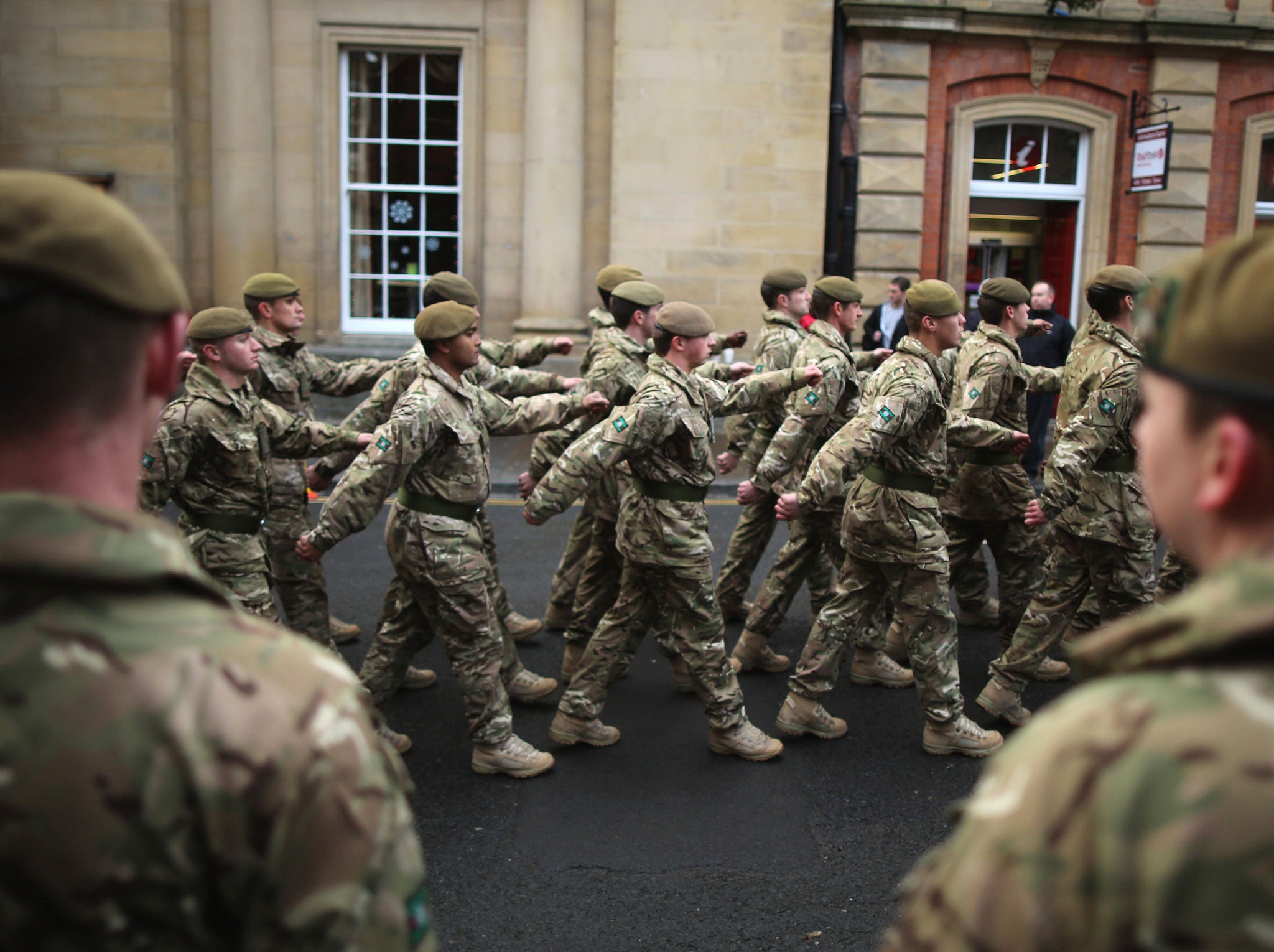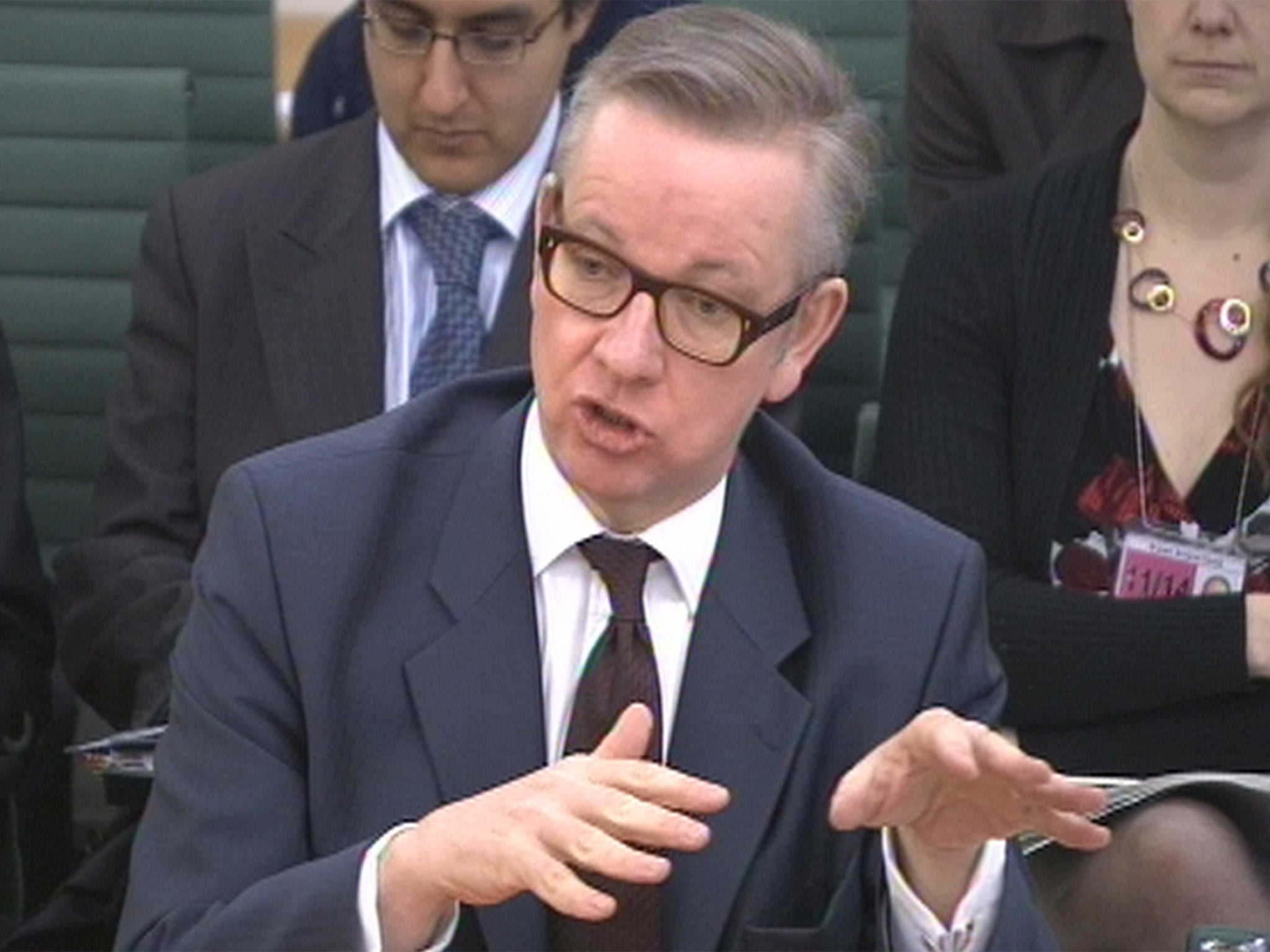The Independent's journalism is supported by our readers. When you purchase through links on our site, we may earn commission.
Those who've fought, teach: Yes to ex-military teachers but no to cadet units in schools
Former members of the Army, Royal Navy and Royal Air Force have a lot to offer – experience of life, for a start


So the government wants former military personnel without degrees to retrain as teachers by a fast track route from this month.
That’s fine by me. Whatever mantras Christine Blower and the NUT trot out primly, there is nothing in a dumbed down, low grade degree from a second rate university which automatically creates a good teacher.
We’ve all been taught – or at least those of us without rose coloured spectacles have – by appalling, but brilliantly qualified, teachers and by outstanding, but much less well qualified, ones. A teacher for 36 years myself, I am increasingly convinced that decent teachers are born not made and that Ofsted-style box ticking simply puts off the ones who can do it.
Former members of the Army, Royal Navy and Royal Air Force have a lot to offer – experience of life, for a start. A teacher who goes into full time training straight from school and then immediately back to the classroom as I did, inevitably has a very restricted outlook.
Not that this is a new idea of course. Like my grandfather in 1920/1 suitable men who’d fought in World War One were trained as teachers on a one year course. He was a highly successful, much loved and respected primary teacher from 1921 until 1970 when ill-health (years after the official retirement age – something else which is not new) finally stopped him.
It was the same story after World War Two. My father, demobbed from the RAF in 1945, did a one year ‘emergency’ training in 1947/8 and then taught maths in a secondary school for several years before starting his own business. Years later after he retired from business he went back to supply teaching and one-to-one special needs tuition for Kent County Council. Once a teacher, always…
My Ebook Please Miss We’re Boys (Kindle 2013) tells the story of my first five years in teaching from 1968-1973 in a very difficult, all boys school in pre-yuppy Deptford. Several of my colleagues were ‘graduates’ of post-war emergency training and were some of the finest and most sensible teachers I’ve ever worked with. The profession was full of them until they retired in the 1980s.
So yes, let’s encourage former troops into schools and allow their experience to offset some of the conventional four years of brainwashing (sorry: training) which school leavers wanting to teach usually have to undergo.
But that does not mean that schools and classrooms should be managed or run as if they were army units. The word ‘discipline’ is regularly and wrongly bandied about in this context as if you can manage young people’s learning by pretending they’re being trained as soldiers, expected to obey without question and not to think for themselves.

These new trainee teachers must be helped to understand that children are not automata. Each pupil is different and much education is about asking questions and pushing boundaries – with courtesy, consideration for others and a grasp of appropriateness. That’s real discipline and on the whole it’s taught by example.
Much less welcome is the parallel news that the government wants more cadet units in schools and has allocated £11m to create 100 more by next year.
Well thank goodness it’s only 100 (there are about 3000 secondary schools in England). And that’s a 100 too many. I really don’t want young people dressed in military uniforms playing soldiers as part of their school day. All the boys I knew had to do it in their own schools when I was growing up and I’ve seen it at work in many schools since, although these days it’s usually optional. For most it’s a complete waste of time.
There are many more useful ways of channelling youthful energy than by imbuing young people with military values. That £11m would be much better spent on promoting schemes to get young people actively helping other people who need it in their local communities. And teachers with military experience, who tend to have good organisational skills, would be well placed to lead them.
Join our commenting forum
Join thought-provoking conversations, follow other Independent readers and see their replies
Comments
Bookmark popover
Removed from bookmarks